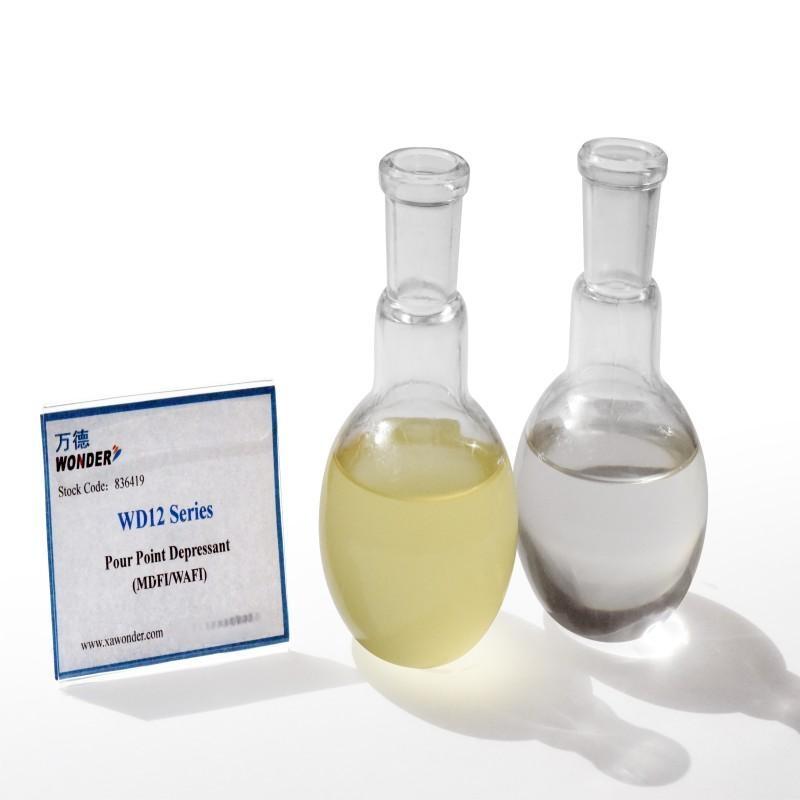-
Categories
-
Pharmaceutical Intermediates
-
Active Pharmaceutical Ingredients
-
Food Additives
- Industrial Coatings
- Agrochemicals
- Dyes and Pigments
- Surfactant
- Flavors and Fragrances
- Chemical Reagents
- Catalyst and Auxiliary
- Natural Products
- Inorganic Chemistry
-
Organic Chemistry
-
Biochemical Engineering
- Analytical Chemistry
-
Cosmetic Ingredient
- Water Treatment Chemical
-
Pharmaceutical Intermediates
Promotion
ECHEMI Mall
Wholesale
Weekly Price
Exhibition
News
-
Trade Service
Since entering 2022, international oil prices have soared all the way, breaking through the $120 per barrel mark
several times.
Under the existing refined oil pricing mechanism, domestic oil prices showed a pattern of "ten rises and three falls" during the year, and when oil prices were at a high point, filling a tank of oil cost more than 100 yuan
more than at the beginning of the year.
Recently, Brent crude oil futures fell below the important psychological threshold of $100 mark, hitting a new three-month low
.
Many institutions expect that the price of refined oil products or will usher in a "three consecutive declines" market
.
Infographic: Oil field oil production
.
Photo by China News Service reporter Sun Rui
Why did international oil prices fall below the $100 mark?
"The decline in international oil prices is caused
by the superposition of political, economic and financial factors.
" Dong Xiucheng, executive dean of the Institute of International Business Strategy of the University of International Business and Economics, said in an interview with reporters that the core factor of the decline in oil prices is that the world economy, especially the economic situation in Europe and the United States, is not optimistic
.
"Economic development itself is actually positively correlated with oil prices, and the acceleration of the economy (growth) will of course have a greater
demand for energy consumption.
" Dong Xiucheng said that in turn, during the economic recession, energy consumption demand will weaken, which is the core factor
.
Lin Boqiang, dean of the China Energy Policy Research Institute at Xiamen University, also held the same view, telling reporters, "After the Fed raised interest rates, the global stock market fell, and the market was not optimistic about the outlook for the economy, and therefore not optimistic about the demand for
oil.
" ”
In Dong Xiucheng's view, political factors have also led to a further decline in
international oil prices.
"Around the energy sanctions and counter-sanctions between Europe and the major oil producers, the measure overall, oil production occupies a relatively proactive position
.
"
Dong Xiucheng said that the import of oil and gas from major oil producing countries is not a ban, but a price limit order, which is actually a relaxation of sanctions
.
"Because sanctions in the strict sense of the word, sanctions are that the ban (not from you), can send such a signal (to say), can enter, but the price may be controlled, itself is a sign
of slowing down.
" 」
In the view of the two experts, financial factors are also the "boosters" that have led to the decline in oil prices
.
Recently, the euro fell against the dollar to a nearly 20-year low, exacerbating the downward trend in
oil prices.
Dong Xiucheng said, "There is a reverse relationship between the dollar and oil prices, international trade oil and gas, these commodities are mainly denominated in dollars, but the depreciation of the dollar usually leads to an increase in oil prices, and the appreciation of the US dollar will lead to a decline in
oil prices.
" ”
Oil prices in the second half of the year are lower than in the first half of the year?
Although international oil prices briefly fell below $100, they were generally high
.
In Dong Xiucheng's view, oil prices in the second half of the year are lower than the level of the first half of the year, but they will certainly fluctuate and fluctuate
.
It's not that if you fall to $95, you won't get back to $100
.
"Any major event in the world may cause oil price fluctuations
.
" Dong Xiucheng said that no matter how the shock is, international oil prices should generally be a downward trend
in the shock.
Oil prices may be lower next year than this year, but it will be difficult to fall to around $40 or 50
.
Xi Jiarui, an analyst at Jinlianchuang Crude Oil, said that under the scenario of falling demand and stable supply, crude oil prices have not yet bottomed out and will continue to maintain a pattern
of severe shocks.
In the short term, if the epidemic situation is not optimistic, oil prices may test the support level of $90 per barrel; Of course, if Western price sanctions on oil advance, oil prices may return above $100 a barrel
.
High oil prices currently have little impact on China
According to the National Bureau of Statistics, the national consumer price index (CPI) rose 2.
5%
year-on-year in June.
In this regard, Dong Xiucheng said that China's inflation situation is relatively ideal, but if the high level of oil prices continues to be relatively long, in fact, we are also under pressure
.
Lin Boqiang said that high oil prices have little
impact on China at present.
The reason for this is that China's energy is mainly coal, coal prices are not a problem, and the impact of oil and gas prices on the economy is relatively weak
.
"In terms of the proportion of oil and gas energy, Europe is about 60%, and the United States is more than 70%, so the inflation rate abroad is very high
.
"
In Dong Xiucheng's view, maintaining relatively stable supply, improving the reserve system, and adopting policy adjustments are three important measures
to deal with high oil prices.
"Ensuring the stability of the supply market and appropriately reducing the fuel consumption tax also have a certain guarantee
for the operating costs of the whole society, including the interests of consumers.
"







